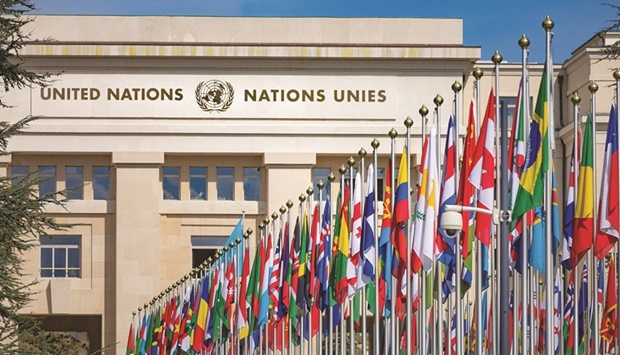The United Nations was founded on 24 October 1945 to achieve peace, security, international co-operation, and to promote the well-being of the people. Ever since its establishment it has officially become an entity in its own right.
Related to these objectives, the Peruvian former UN secretary-general Javier Pérez de Cuellar (1982-1991) used to say that “the peace is a very complex concept, it is not only the cessation of oppositions or the absence of war ... peace in its great definition is the well-being, the spiritual and economic well-being of all human”.
It should be remembered that with the Treaty of Versailles in 1919, after the end of the First World War (1914-1918), when 32 countries and a total of 64 created the League of Nations, which had an important validity until 1929, having resolved several conflicts.
Given this multilateral diplomacy, returning to history, at the end of the Second World War (1939-1945), diplomats and politicians from various countries met in the US city of San Francisco to sign the Charter of the United Nations, constituting the largest organisation for peace, international security, co-operation and to resolve global situations; and, to be the centre that harmonises the interests of the nations.
In September of each year, the heads of state and government visit New York, the headquarters of the United Nations, to deliver speeches to the 193 representatives of the organisation’s member states.
The General Assembly, created in 1945, and directed by a president elected annually, is the most important entity of the organisation since it is constituted as a forum for multilateral deliberations that have the purpose of issuing resolutions on matters that derive from the objectives for which the United Nations was created for.
The 77th UN General Assembly of this year allows me to highlight the content of the speech delivered by His Highness the Amir of Qatar, Sheikh Tamim bin Hamad al-Thani, who addressed essential issues for the well-being of harmonious coexistence in the world.
It is worth mentioning some matters expressed such as the positive impact of the FIFA World Cup Qatar 2022; the world as a global village; the necessity to impose solutions to international conflicts; adherence to the principles of justice and equity in international relations, saying: “The realities of our world today depict a bleak image of the future of humanity, but we believe in dialogue, joint action, and an attempt by each party to understand the other by putting himself in someone else’s position in order to see things from the perspective of that other party”.
Another diplomatic action that I would like to mention is Qatar’s consistent diplomatic mediation to resolve some disputes in the international arena.
On the other hand, the Amir underlined “the lack of global co-ordination and planning of rational and balanced energy policies”, to have sustainable alternatives with the diversification of energy sources that protect the environment.
With respect to the participation of the other leaders, we have found coincidences in all positions, as we share many issues at the global level and the friendly multilateral relations between us.
In the end, I would like to say that the United Nations should work in preventive diplomacy to reduce the tension before generating a conflict. Therefore the international order should cover other domains: the institution of the rule of law and the observance of human rights, socio-economic development and solidarity, and the preservation of the environment.
I also believe that we must unite together to promote dialogue, peace, peaceful coexistence, development for all with equal opportunities, and control the conflicts with continued universal efforts.

794611
